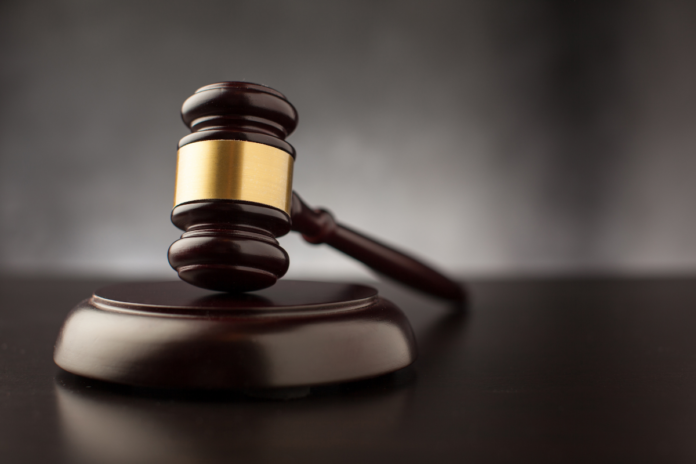For decades, hair relaxers have been a staple in many beauty routines, particularly for Black women seeking straighter styles. But what if the path to achieving sleek hair came at a hidden cost?
A growing number of women are stepping forward, alleging a link between hair relaxer use and serious health problems. This has sparked a wave of lawsuits against hair straightener companies, raising concerns about industry practices and consumer safety.
This article delves into the heart of the growing chemical hair straightener lawsuit movement. We’ll explore the emerging health concerns and the unfolding legal battles.
Cultural Significance of Hair Relaxers
Hair straighteners have a deep-rooted history and cultural significance, particularly within the Black community. Historically, U.S. beauty standards have been predominantly white, influencing perceptions of beauty and professionalism. This has led to discrimination against Black women based on their natural hair texture.
According to NewBeauty, chemical relaxer treatments gained popularity in the 1980s and 1990s. They offered Black women a more permanent solution to achieve straight hair, relieving them from the laborious process of using hot combs.
These treatments offered Black women the means to achieve straight hair more easily, aligning with prevalent Eurocentric beauty ideals. Many Black women adopted chemical straightening from a young age, influenced by societal norms.
However, this cultural practice has not been without consequences. Chemical relaxers typically contain harsh ingredients like lye, sodium hydroxide, and formaldehyde, which are known for their damaging health effects. As awareness grows about the potential health risks associated with relaxers, discussions around embracing one’s authentic hair texture have gained momentum.
Health Concerns Associated with Hair Relaxers
Emerging research has raised concerns about the potential health risks associated with using chemical hair straighteners. Studies have suggested a possible link between relaxer use and various health problems, including uterine cancer, fibroids, and scalp irritation.
According to ScienceDirect, a recent study reported a significant association between long-term use of chemical hair relaxers and increased risk of uterine cancer. The study found that women who reported using hair relaxers regularly had over a 50% higher risk of uterine cancer. This risk was compared to those who never or rarely used these products.
Lead author Kimberly Bertrand emphasized the racial disparities in uterine cancer rates, highlighting the higher prevalence of aggressive subtypes among Black women. The study found statistically significant increases in uterine cancer rates among postmenopausal women who commonly used hair relaxers.
Emergence of the Lawsuit
In recent years, a significant uptick in lawsuits concerning hair relaxer products has emerged. They are driven by mounting evidence linking these products to serious health conditions.
Hair relaxer lawsuits filed in various jurisdictions represent numerous women. These women assert that their use of hair straighteners has led to the development of conditions such as uterine cancer and other health complications.
According to TorHoerman Law, these cases have been consolidated into multidistrict litigation (MDL) to streamline the litigation process. This hair relaxer MDL encompasses lawsuits filed by victims who have suffered adverse health effects from the toxic chemicals present in these hair products.
Fueling the Lawsuit Movement
The surge in lawsuits has been fueled by personal stories of women who have suffered adverse health effects from the use of these products. According to The Cut, one such individual is Deanna Denham Hughes. Denham Hughes’s childhood memories are intertwined with the ritual of using the Just for Me hair relaxer.
From an early age, her mother applied the product to her hair, influenced by societal expectations to adhere to Eurocentric beauty norms. Despite the discomfort and burning sensation caused by the relaxer, Denham Hughes continued its use. She sought the desired straight hair that would help her fit in and feel confident.
However, years later, Denham Hughes was diagnosed with stage-three ovarian cancer, a shocking revelation for a young, otherwise healthy woman. While undergoing chemotherapy, she came across information indicating a heightened risk of specific cancers associated with chemical hair straighteners.
Feeling betrayed by a product she had used since childhood, Denham Hughes became determined to seek justice for the health consequences.
Her story is just one of many driving the surge in lawsuits against hair relaxer companies. Personal accounts like hers and evolving research highlighting the health risks posed by these products have galvanized affected individuals to seek legal recourse.
These legal actions seek to hold manufacturers accountable for neglecting to sufficiently caution consumers about the potential hazards of their products. Additionally, they seek compensation for individuals who have experienced harm due to product usage.
Update on the Hair Relaxer Lawsuit
According to recent updates, over 8,000 product liability lawsuits have been filed by women against brands like Dark & Lovely and Just for Me. Competing draft bellwether trial plans were proposed in November 2023, outlining the selection process for potential cases and their preparation for early trial dates.
However, disagreements persist regarding key aspects, including bellwether case selections and the timing of trials. The March 2024 status conference addressed these issues, with expectations of issuing a case management order to guide the progression of litigation.
Bellwether trials serve to identify representative cases, but complexities often arise as parties seek selections advantageous to their interests. The outcome of these trials significantly influences potential payouts for lawsuit settlements. This impacts manufacturers’ financial obligations to avoid extensive individual trials nationwide.
Frequently Asked Questions
What are the lawsuits for hair straightening?
Hair straightening lawsuits involve claims against manufacturers of chemical hair straightening products. Research indicates these products double the risk of uterine cancer. If diagnosed with uterine cancer post-use, individuals may qualify for compensation through hair straightener lawsuits.
Which hair straightening method is safe?
The safest method for permanent hair straightening is a keratin treatment. Unlike relaxers and permanent waves, keratin treatments don’t use harsh chemicals. This makes them a preferred option for those seeking straight hair without risking damage from chemical exposure.
How much compensation can be expected from the relaxer lawsuit?
The average settlement in hair relaxer cancer lawsuits varies from $100,000 to $1,500,000 based on injury severity and case strength. Eligible claimants may receive compensation for various damages.
In conclusion, the hair relaxer lawsuit movement represents a fight for justice and transparency within the beauty industry. While the legal process unfolds and the science continues to evolve, these lawsuits have ignited a conversation about consumer safety and product accountability.
Looking forward, the outcome of this movement could lead to stricter regulations, reformulated products, and a more informed approach to haircare. As the movement gains momentum, the potential for lasting change in the beauty industry remains a possibility.









